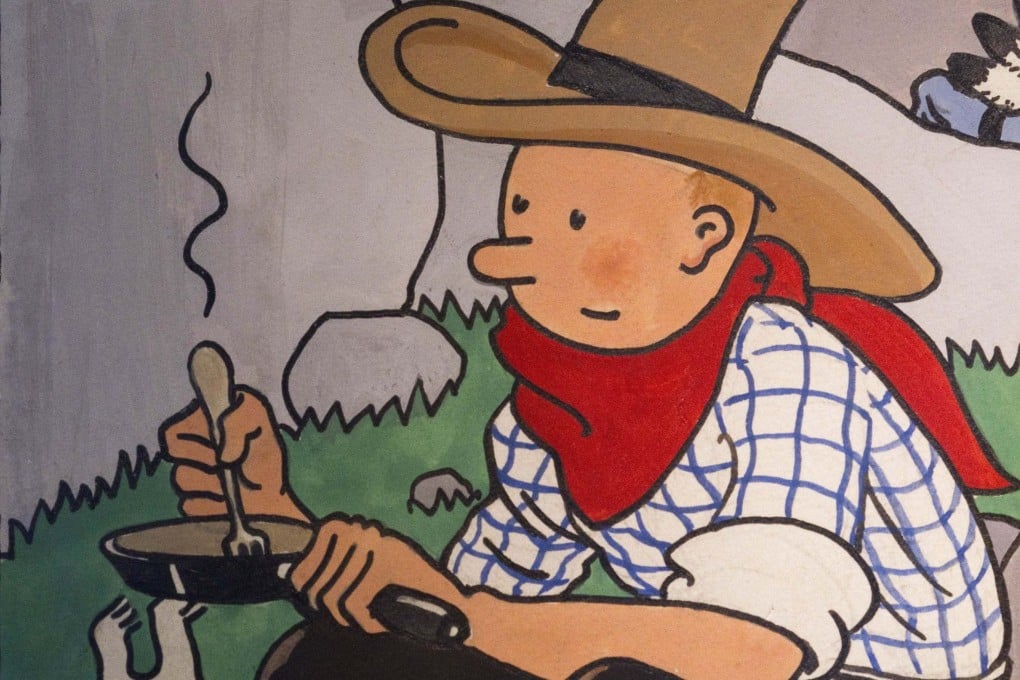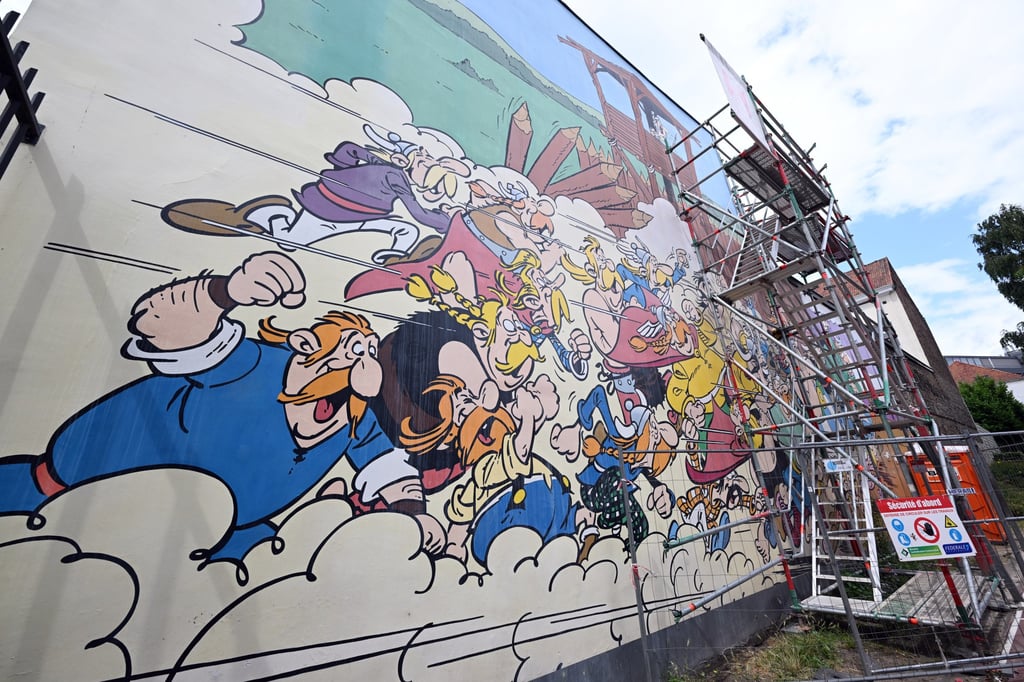AI for creating comics? Europe’s industry completely rejects it, Tintin executive says
- Tools such as Midjourney and Dall-E have triggered a fightback in comic land as publishers gear up for litigation ahead of new EU rules

Home to animated heroes from Tintin to the Smurfs, the Belgian city of Brussels is proud to display its cartoon heritage in mammoth murals that tower over its stately streets. But all is not well in the self-declared capital of comics.
In an industry where animators routinely depict epic battles between superheroes and arch-villains, European cartoon artists are now in a real-life fight of their own, fending off a new, faceless adversary: artificial intelligence (AI).
AI-generated art operates in a legal grey area. Copyright laws in the European Union do not explicitly cover AI-generated art, leaving some artists wondering if AI will help or hinder creativity, and throwing up the thorny question of whether low-cost AI tools will eventually replace human artists.
Generative AI tools, such as Midjourney, use a machine-learning algorithm – trained on artists’ images – to generate pictures in minutes.

This has triggered a “complete rejection” of AI in the European comic-book industry, according to Gauthier van Meerbeeck, editorial director at Le Lombard.
